
It is never easy to move on when the remnants of a broken relationship are right in front of one's eyes. For the villagers in Singur who had willingly given up their land for the Tata Nano factory in the hope of a better future, the deserted structure spread across 997 acres is a daily reminder of a lost opportunity.
Now, this sense of loss has taken a political shape and given rise to an anti-TMC sentiment in some quarters of the constituency, which the ruling party, riding high on the Singur and Nandigram movements, had won by a margin of 35,000 votes in 2011.
Currently, with the matter of the land's ownership pending in the Supreme Court, it can neither be returned to their rightful owners nor used for any industrial purpose. The vast swathe of land is being guarded by police to keep the local villagers out and to prevent expensive parts of the factory from being stolen.
Chief Minister Mamata Banerjee's statement that "if the court takes five years or 50 years to adjudicate we are helpless" has many voters doubting her government's sincerity about resolving the issue.
Plotting a comeback
The CPI(M) is nurturing this discontent. The party's Singur candidate Rabin Deb and its state secretary Surjya Kanta Mishra have promised to revive the Nano project and provide jobs to the villagers who have given up their land for it.
"Singur was victim of the statewide anti-establishment sentiment whipped up by the media. People now know that the entire land agitation was based on falsehood. Youth here need jobs. We have promised the people of Singur that if we come to power we will generate jobs and revive the Nano project," says Pachkori Das, the secretary of CPM's Singur zone.
The left is also trying to capitalise on the reported split in the TMC over the candidature of Rabindranath Bhattacharya, the three-time MLA from Singur.
Divide and rule
Both the CPM and the TMC have their respective electorates well defined -- "willing landowners" and "unwilling farmers". The willing landowners sold their land to Tata on the promise of employment. The unwilling farmers made the ranks of the agitation spearheaded by Mamata that drove the company out of Singur in 2008.
"The willing landowners have got their compensation money and they lend it to others on interest. What are they complaining about now? They fell into a trap. We had told them not to sell their land if they were not getting the right price. But they didn't listen. We're not going to bother about what's happening to them now," says Nimai Malik, president of TMC's Beraberi unit.
To her likely voters, the unwilling farmers, Mamata is giving rice for Rs 2/kg and Rs 2,000 each. This has only further antagonised the "willing group" which never got the promised jobs despite undergoing technical training, and have spent most of their compensation money.
Here are two video interviews that represent the diametrically opposite views on the Nano project. They help explain why even eight years after the project shut down and moved out, it continues to be an emotive electoral issue in Singur.
First published: 29 April 2016, 10:00 IST


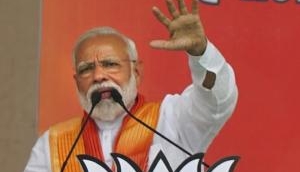
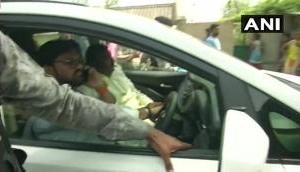
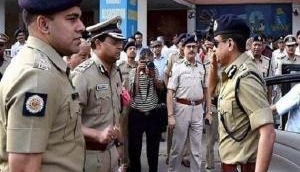
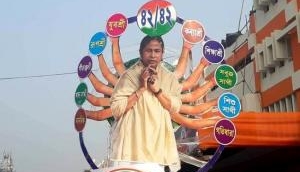
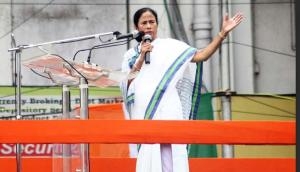
![BJP's Kapil Mishra recreates Shankar Mahadevan’s ‘Breathless’ song to highlight Delhi pollution [WATCH] BJP's Kapil Mishra recreates Shankar Mahadevan’s ‘Breathless’ song to highlight Delhi pollution [WATCH]](https://images.catchnews.com/upload/2022/11/03/kapil-mishra_240884_300x172.png)

![Anupam Kher shares pictures of his toned body on 67th birthday [MUST SEE] Anupam Kher shares pictures of his toned body on 67th birthday [MUST SEE]](https://images.catchnews.com/upload/2022/03/07/Anupam_kher_231145_300x172.jpg)






